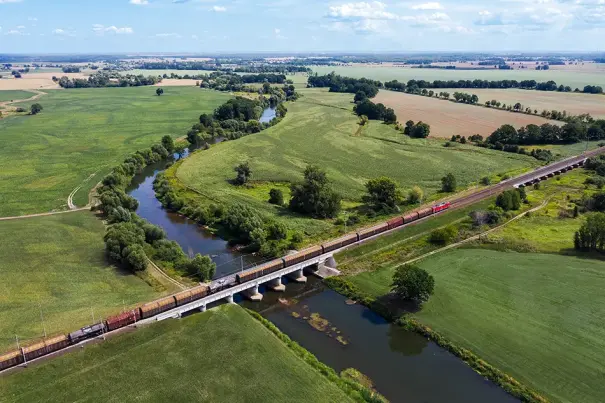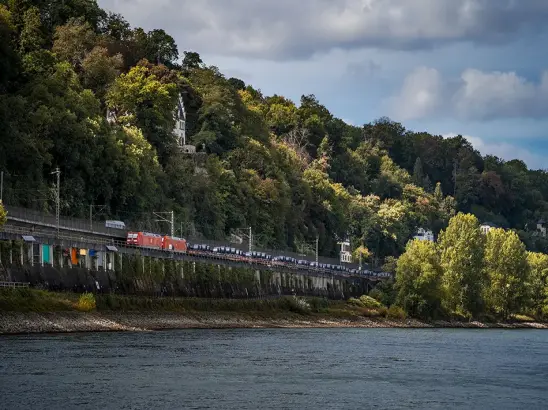The residual materials are treated in a technical process to obtain an organic equivalent to diesel, one that replaces the fuel originally used. In a second step, the CO2 emissions from all diesel locomotives at thyssenkrupp Steel will be reduced gradually using this process, making all plant transportation significantly more sustainable. This means that the company's decarbonization strategy is also being actively supported in logistics.
HVO enables savings without technical conversion
thyssenkrupp Steel is already saving more than 6500 metric tons of CO2 every year with this process. Particularly practical: thyssenkrupp Steel can continue to use its own rail vehicles in the event of a changeover, as HVO is compatible with conventional fuel. "We can continue to use the diesel engines we have now. This also has other advantages, because we reduce soot particles in the environment," explains Frank Brockel, head of transportation and rail operations at thyssenkrupp Steel. "Consumption is only minimally higher in the process, while the service life of our machines is unaffected." At thyssenkrupp Rasselstein, the HVO offering from DB Cargo also fits in perfectly with the marketing of bluemint® Steel. This is because transporting the input stock (around 1.7 million metric tons of hot strip per year) from Duisburg to Andernach represents a major lever for reducing CO2 in the supply chain if it is switched over completely to HVO (which by the way is called EcoFuel at DB Cargo). "We want to get straight to the point and use EcoFuel for all raw material procurement," explains Oliver Pellin, responsible for distribution logistics at thyssenkrupp Rasselstein. "We keep a constant eye on the utilization of transport wagons as well as other modes of transport in this regard. The aim is to make the most effective use of all transport modes," says Frank Brockel. "When it comes to logistics, in addition to transport itself, avoiding transport runs and increasing transport efficiency are the key ways to reduce CO2." Rasselstein therefore checks its transport chain, for example by a mapping procedure, to see where utilization can be improved further if necessary. CO2 emissions are also measured, and high emission values are reduced through optimization. In the future, the propulsion units in the transport vehicles will be developed further to allow green drive technologies to be used. This is usually achieved by electricity within the company, as well as using solar cells or electro-hybrid drive technologies for large vehicles such as locomotives. Corresponding studies have already been set in motion.

Looking to the future, thyssenkrupp Steel is pursuing the goal of providing its customers with a sustainable all-round package: ranging from products such as bluemint® Steel to more climate-friendly transportation, which is being extended from inter-plant logistics across the entire route network. "To make our steel products carbon-neutral, it is not enough to decarbonize the CO2-intensive production process. We are thus also looking at individual processes for avoiding CO2 emissions. Against this background, I am delighted that in logistics we are already able to take the first steps towards reducing our carbon footprint through our cooperation with DB Cargo," says Carmen Ostwald, Head of Business Development bluemint® Steel at thyssenkrupp Steel.
Customers can also benefit from the added sustainability in the supply chain, because the volumes of CO2 saved have a positive impact on their Scope 3 emissions. The cooperation with DB Cargo is a step in the climate-friendly direction. Work is being carried out on further drive approaches for operating locomotives, which are also technically innovative. We are also monitoring how the market is developing and where things are heading for thyssenkrupp Steel's logistics – a new generation of logistics for steel. For Oliver Pellin and Frank Brockel, the situation is quite clear: "Biofuel as well as the path to green electricity once again reveal how important sustainable processes are at thyssenkrupp Steel. Decarbonization of the product and supply chains affects not only our customers, but also ourselves. That's why we want to shed light on the topic with this conversion, and inform our customers in a proactive way: 'You're welcome to jump on the bandwagon' – in the truest sense of the word."






